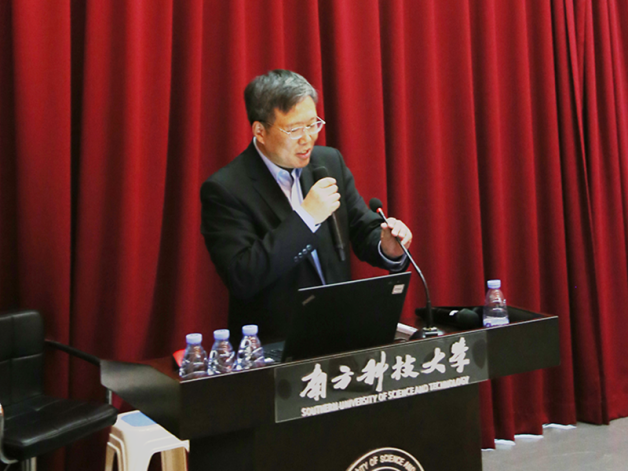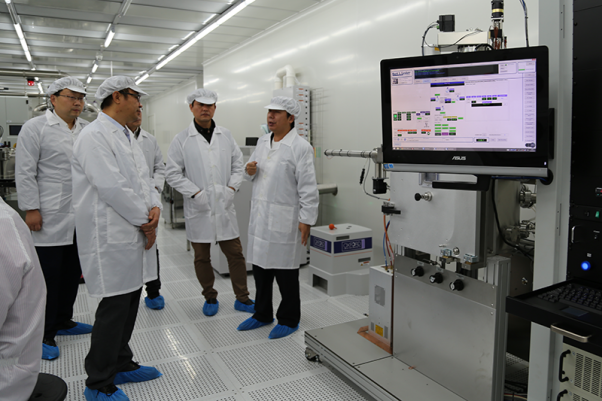Southern University of Science and Technology (SUSTech) was the host venue of the 2018 Dean’s Forum on Electronic Science. Deans and scholars from more than ten famous universities across mainland China gathered to discuss the new era of electronic science.
SUSTech Vice President Teng Jinguang welcomed the guests and scholars in attendance. He briefed the audience about the developments and achievements of SUSTech, focusing on scientific research, teaching reform and academic exchanges. He proposed a new model for exploring education.

Vice Dean Zhang Bi of the College of Engineering gave a report on topics such as school-enterprise cooperation and cultivation of innovative talents. Dean Wu Jingshen of the School of System Design and Intelligent Manufacturing started the MIT Global Engineering Higher Education Research Report to explain how new engineering education is meeting the trends and challenges of the new era of engineering.
Electrical and Electronic Engineering Department head Sun Xiaowei spoke about “Future-oriented, collaborative innovation.” As part of his presentation, he proposed that the Department remain based in Shenzhen, at the heart of the Guangdong-Hong Kong-Macau Greater Bay Area. Such an approach would help in the development of strategic electronic engineering disciplines across the Greater Bay Area, and he advocated that all universities work together towards this goal for their combined benefit.
Professors from Fudan University, Huazhong University of Science and Technology, Southeast University, Xi’an University of Electronic Science and Technology, Nanjing University, Tianjin University, Changchun University of Science and Technology, Wuhan University, Hebei University of Technology, Nanjing University of Posts and Telecommunications, Zhengzhou University and other universities all provided different perspectives on the future development of Electronic Science and new engineering education.
Participants conducted in-depth discussions on a series of topics, and comprehensively analyzed the shortcomings of traditional higher engineering education. The delegates also proposed improvements such as multi-party collaborative innovation, deepening reform and cooperation and exchange.

During the forum, delegates also visited the laboratories of SUSTech’s Department of Electrical and Electronic Engineering.
The forum was hosted by the Department of Electrical and Electronic Engineering. The forum further deepened the understanding of relevant domestic departments while promoting exchanges and cooperation between high-level engineering universities. Participants objectively analyzed the multi-party collaborative innovation of today’s electronic disciplines, deepening reforms of engineering education, and the new era of engineering education.
Proofread ByXia Yingying
Photo By